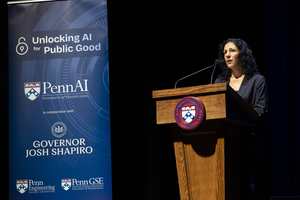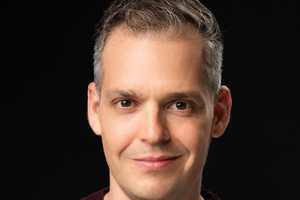Upcoming Events
-
Time: 6:00 PM - 8:00 PM EST | Location: Off Campus
-
Time: 7:00 PM - 8:00 PM EST | Location: Online
-
Time: 12:00 PM - 1:00 PM EST | Location: Online
Ask the Expert
-
Penn GSE’s Yasmin Kafai—in collaboration with Danaé Metaxa from Penn’s Computer and Information Sciences department and high school computer science educators across the country—developed the “AI Auditing for High School” curriculum to introduce students to algorithmic bias and guide them through hands-on audits of real-world AI applications.
-
A new study coauthored by Penn GSE’s Michael A. Gottfried is the first to show that teachers’ ability to teach in students’ home language, combined with a shared racial or ethnic background, drives greater academic gains.
Penn GSE News
Want to keep up with all that is happening at Penn GSE? Subscribe to our biweekly newsletter featuring updates, upcoming events, and faculty media engagements.

Penn GSE Magazine
Responsibly Shaping the Future of AI in Education






